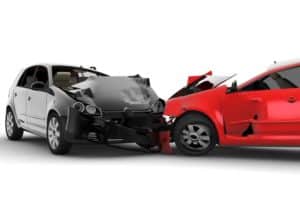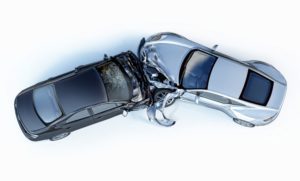If you’re injured in a car accident in Topeka, your first thoughts will likely be treatment and recovery from your injuries. Your next thoughts may be to claim compensation for these injuries.
That may not turn out to be as simple as it should be, especially if your injury is serious, and you have a long recovery and recuperation period.
Every claim is different, depending on the precise circumstances, but torts are rarely straightforward, and it helps to have the expertise of a personal injury lawyer at your side—preferably one with the experience of maximizing claims against negligent parties.
Many obstacles to fair compensation can arise, and it helps to know how to navigate the claims process.
In this guide to car accident injury claims in Kansas, you will get answers to most of the common questions we are asked about compensation.
What types of compensation can I claim after a car accident injury in Kansas?
Car accident injury victims can claim both economic and general (noneconomic) damages in Kansas.
Economic injuries involve monetary losses and can usually be proven by invoices, receipts, and wage slips. These may include:
- Medical costs, including emergency medical care, hospitalization, rehabilitative treatment, etc.
- Loss of income, based on your occupation, age and experience
- Loss of earning capacity in the future if you are unable to work again or only at a reduced capacity
General damages are awarded for pain and suffering resulting from the injuries (for the victim and/or loved ones who care for him or her). These are more difficult to prove but may include anxiety, stress, loss of companionship and loss of quality of life.
Does Topeka Kansas set a limit on damages?

The limit on damages generally derives from the maximum coverage allowed by the at-fault party’s insurance policy.
All Kansas motorists must carry minimum car insurance coverage that includes:
- Liability coverage up to $25,000 per person for injury and $50,000 per collision (if more than one person is injured) and $25,000 for third-party property damage
- Personal injury protection/no-fault coverage: $4,500 per person for medical costs; $25 per day for assistive/rehabilitative in-home care; $900 per month for loss of income; $2,000 for last rites if the injuries led to death; and $4,500 rehabilitative treatment costs.
- Uninsured/underinsured motorist coverage: $25,000 per person and a maximum of $50,000 per collision.
So, the limit for damages against a motorist with the minimum coverage described above would be up to $25,000 for medical expenses and up to $25,000 for property damage.
If the at-fault driver is uninsured or underinsured, you can claim up to $25,000 in medical costs through your insurance provider.
If you want to claim more compensation than this, you may be able to take legal action against multiple parties who share the fault for the accident or ask the at-fault driver to pay out of his or her own pocket. In such cases, Kansas imposes strict limits on noneconomic damages. Depending upon when the injury occurred, the limit is between $250,000 and $350,000.
How do PIP benefits work?
The Personal Injury Protection (PIP) portion of insurance policies allows accident victims to claim compensation for medical expenses regardless of fault or how serious the injuries are.
Injured drivers would file a PIP claim with their own insurance company and can expect payment within 30 days. There is no minimum threshold for doing so.
PIP insurance not only covers the policyholders but also protects parties who are injured by the policyholder and those connected to the policyholder (like family members living in the same household).
So, passengers, pedestrians, or other victims of accidents can claim benefits from a driver’s PIP coverage or the auto insurance of an in-household family member. This can help pay for your medical bills.
What if PIP benefits are not sufficient to cover the medical bills?
If the PIP benefits do not cover your entire medical expenses, you may be able to seek compensation from the insurance provider of the at-fault motorist.
This is only permitted in Kansas if you can prove at least one of the following:
- You have been seriously injured, or
- Your medical expenses exceed $2,000
PIP and lost earnings
PIP insurance will cover you for $900/month or 85 percent of your lost wages for one year.
If this is not sufficient to cover your expenses, you have the choice of taking legal action against the at-fault party. If successful, the insurance company will pay all of the lost earnings that you can prove.
What is a “serious injury”?
Because you can only claim against an at-fault driver’s insurance company in Kansas if you suffer a “serious injury”, we need to define what that means:
- Permanent loss of a physical function/ability
- Permanent damage to an organ/bodily system (Spinal, bone & brain injuries )
- Dismemberment
- Extensive and conspicuous disfigurement
- Compound fracture
- Injuries that require immediate and overnight hospitalization
In the case of death, the family of the victim can pursue a claim against the at-fault party.
How do you make a car accident claim in Kansas?
The standard procedure for claiming car accident compensation in Kansas is as follows:
What if the car wreck injury was partly my fault?

For instance, if you were deemed to be 25 percent at fault for the accident, you would receive only 75 percent of your claim. In other words, you would receive $15,000 from a claim for $20,000.
The 51% Bar Rule means that if you were more than 50 percent at fault for the accident that caused your injuries, you are not permitted to file a personal injury claim against the other party or parties involved.
However, you can still file a claim for PIP benefits.
How do you prove fault for your car accident injuries?
A seasoned car wreck injury lawyer can help you prove fault and claim the maximum compensation available for your injuries.
You will need to show that the at-fault party was negligent in their duty of care to you by disobeying a traffic rule or failing to act reasonably, leading to the accident that caused your injuries.
Sometimes, however, fault is contested, both drivers share a portion of the blame or no road rule was violated. It requires an experienced car accident lawyer to prove liability, often using eyewitness statements and expert testimony.
Before claiming compensation or signing any agreements with insurance companies, speak to the car accident injury lawyers at Irigonegaray & Revenaugh in Topeka for a free case evaluation and advice on your options. You can reach us directly at 785-267-6115.

